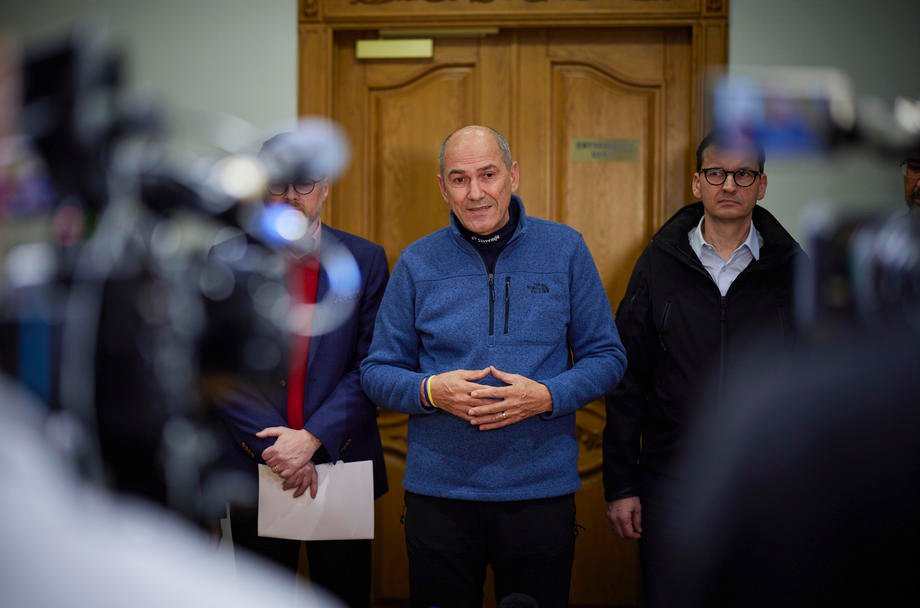By: C.R.
The Rosemary Burton Live show on CBC News hosted Prime Minister Janez Janša, who spoke about the situation in Ukraine and his recent visit to Kyiv, which he made together with the Polish and Czech Prime Ministers.
When asked why the Prime Ministers went to a country where there is a war, the Prime Minister replied that “in Slovenia we know how Ukrainians feel, because 30 years ago we were in a similar situation when we were attacked by the YA and when during the war no one came to support Slovenia. We also know exactly what the difference is between sending messages or preparing video conferences or going to a location and seeing what the real situation is. Many times, what we see on the screens is not the same as what is happening,” said the Prime Minister. He also added that the visit to Ukraine took place without any official protocol, but the meetings were very substantive. “We talked with Ukrainian President Zelenskyy about coordination on refugee assistance, technical assistance, media assistance and other types of assistance they need,” said the Prime Minister.
He went on to say that, in his view, the Ukrainians will never give up, that they will fight to the end and that they will win. “But the situation is difficult, they need our help, and without political correctness, it is clear that the most important help they need – in addition to everything that needs to be done to help people in the war zone – is military aid. We must give them what we have for them to defend themselves, because they are not only defending Ukraine, but also European values,” said the Prime Minister, adding that Ukrainians are defending the value where you can freely choose the system you want to live in, alliances, lifestyles. “They are fighting for all this,” said the Prime Minister.
In connection with the closure of the airspace over Ukraine, the Prime Minister recalled that he had proposed the closure of the airspace before the start of the Russian invasion. “If the no-fly zone had been introduced before Russia invaded Ukraine, everything we see today would certainly not have happened, because in such a case, Russia would have invaded NATO when invading Ukraine, and that would never have happened, because we know, what is the situation between Russia and NATO. The risk of introducing a no-fly zone in the middle of the war is much greater, but we can do something close to that, we can give Ukrainians modern weapons to defend their skies. Because if they cannot defend their skies, there will be not only 2 million refugees in Europe, but 10-15 million,” he added.
Asked whether there was a distinction between refugees from Ukraine and other war zones, the Prime Minister said that Slovenia had hosted tens of thousands of refugees from Bosnia for many years during the war. “It did not matter what nationality the refugees were, mostly women and children. We have also received many families who have fled Syria,” said the Prime Minister. He also made it clear that Slovenia was defending Europe’s Schengen border and that there was a clear distinction between refugees coming from the war zone and economic migrants who only wanted certain benefits and social rights. “When NATO withdrew from Afghanistan, as President-in-Office of the EU Council, we coordinated a common European response and made it clear that we would help all those at risk because of their cooperation with the previous government and Western or NATO forces, and that we cannot accept half of the population of Afghanistan who want to flee from there for economic reasons. It is very important to see and understand the difference between refugees leaving the country because of the war because their lives are endangered and economic migrants who want to leave just because they have a better life in Europe, Canada, and the USA. We can accept them, but there must be a clear distinction. If we devoted a lot of energy to economic migrants, we would leave those who really need help on the side-lines,” concluded Prime Minister Janez Janša.

